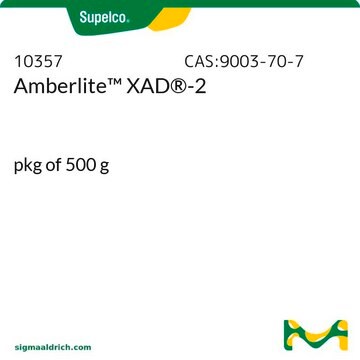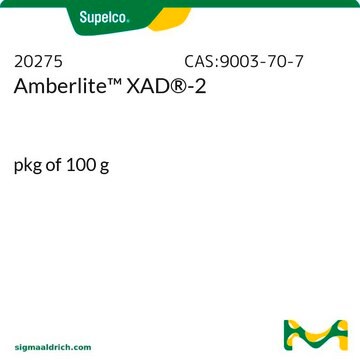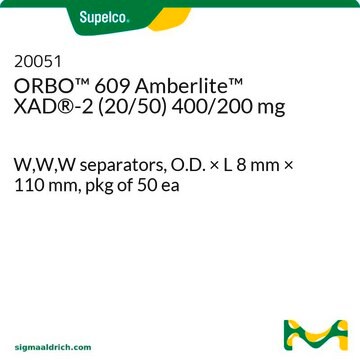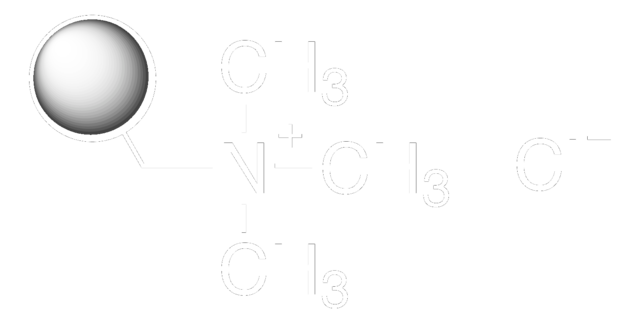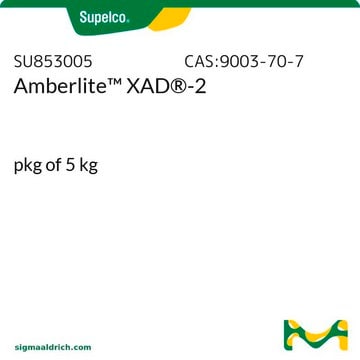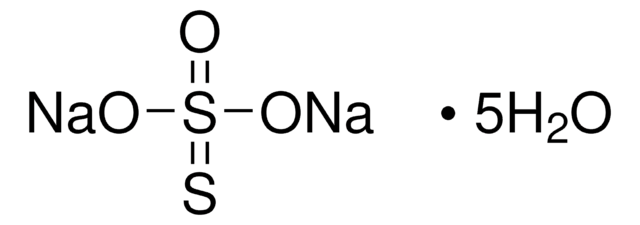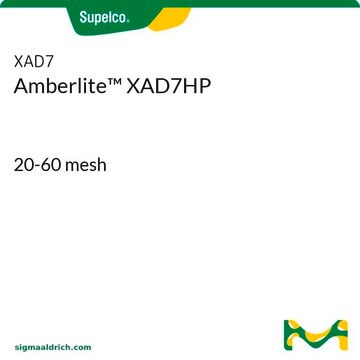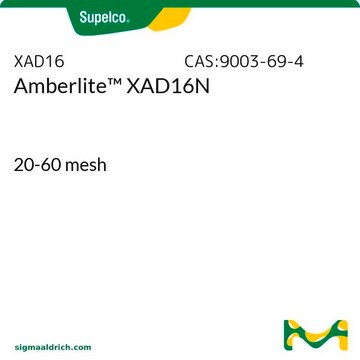Recommended Products
form
solid
Quality Level
packaging
pkg of 25 kg
availability
not available in (Currently experiencing backorder delays due to raw material supply disruption)
technique(s)
HPLC: suitable
LPLC: suitable
ion chromatography: suitable
surface area
~300 m2/g
matrix
styrene-divinylbenzene (macroreticular)
matrix active group
polymer
particle size
20-60 mesh
pore size
~0.65 mL/g pore volume
90 Å mean pore size
density
1.02 g/mL at 25 °C (true wet)(lit.)
1.08 g/mL at 25 °C (skeletal)(lit.)
separation technique
reversed phase
SMILES string
N([C@@H](CCC(=O)OC(C)(C)C)C=O)C(=O)OCC1c2c(cccc2)c3c1cccc3
InChI
1S/C24H27NO5/c1-24(2,3)30-22(27)13-12-16(14-26)25-23(28)29-15-21-19-10-6-4-8-17(19)18-9-5-7-11-20(18)21/h4-11,14,16,21H,12-13,15H2,1-3H3,(H,25,28)/t16-/m0/s1
InChI key
BCIPGSZQUDLGSY-INIZCTEOSA-N
Looking for similar products? Visit Product Comparison Guide
Related Categories
General description
Specifications:
Application
- as adsorbent in the extraction of organochlorine compounds using Soxhlat extraction technique
- as adsorbent in the extraction of honey samples using column chromatography for HPLC analysis
- in adsorption chromatography
Legal Information
Storage Class Code
11 - Combustible Solids
WGK
WGK 3
Flash Point(F)
Not applicable
Flash Point(C)
Not applicable
Personal Protective Equipment
Choose from one of the most recent versions:
Already Own This Product?
Find documentation for the products that you have recently purchased in the Document Library.
Customers Also Viewed
Our team of scientists has experience in all areas of research including Life Science, Material Science, Chemical Synthesis, Chromatography, Analytical and many others.
Contact Technical Service